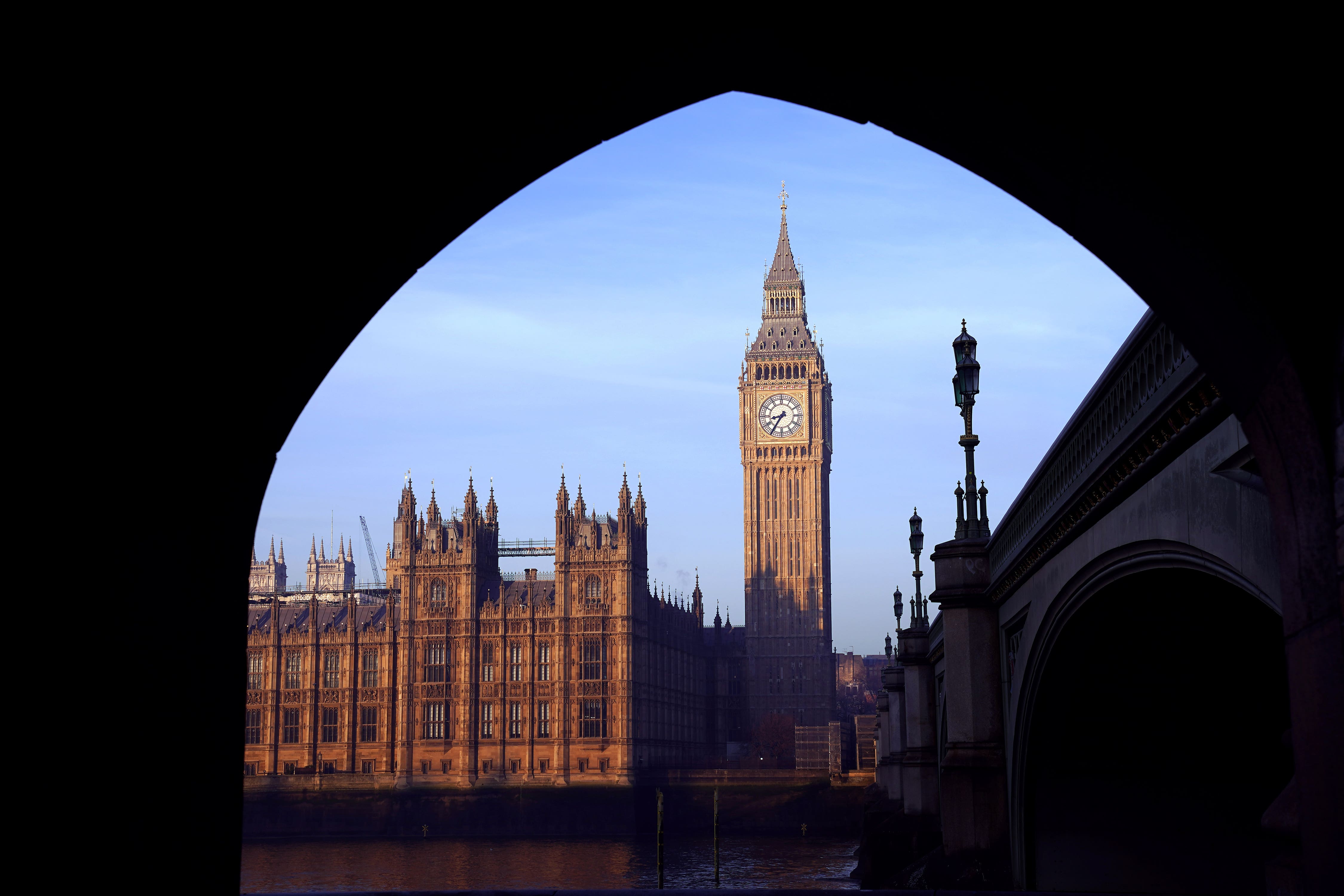Analysis finds rise of ‘muscular unionism’ is out of step with public attitudes
Analysis of a survey of attitudes to the union found a ‘striking ambivalence’ about retaining all four nations in the UK.

The Government in Westminster’s dominance over national decision-making and politicians’ use of “muscular unionism” rhetoric risks undermining public support for maintaining the UK as a single state, research by a think tank suggests.
The latest survey of attitudes to the union across the UK showed a “striking ambivalence” towards the importance of retaining all four nations, according to analysis of the findings by the Institute for Public Policy Research (IPPR).
Public opinion is therefore out of step with the UK Government’s hardline approach to governance in the aftermath of the Scottish independence vote and Brexit referendums, when devolved nations have been denied control of policy areas they expected to take on.
This approach risks “fuelling resentment” and undermining backing for the union in its current form, the IPPR report said.
Furthermore, the analysis found sidelining devolved governments is likely to put off even those who support the union.
The term muscular unionism is used to describe the belief the union should be preserved by asserting the supremacy of the UK Parliament over those in Scotland, Wales and Northern Ireland.
It has been applied to the approach taken by Boris Johnson’s administration to maintaining the union, with the then-prime minister describing the UK as the “awesome foursome” and devolution as a “disaster north of the border”.
The Government has subsequently faced criticism for asserting itself in what have previously been devolved policy areas.
For example, devolved governments have largely been excluded from economic development schemes which replaced European structural funds, the IPPR said.
The authors of the report used the findings of the survey in 2021 to create a muscular unionism “index” to gauge the strength of public opinion across the UK for and against the union.
On the spectrum between strong support and rejection for muscular unionism, voters in all constituent countries were placed slightly off the centre away from muscular unionism, with Scottish voters the most strongly opposed.
In addition, the index shows only Conservative supporters in Scotland and those who back unionist parties in Northern Ireland lean towards a muscular unionist approach, placing them at odds with the opinions of most supporters of the union in England.
This suggests that adopting the rhetoric of muscular unionism risks weakening already ambivalent support, IPPR said.
The analysis found fewer than half of voters in all nations view maintaining the union in its current form as a priority.
The survey also found a strong backing for common social and economic support across the UK, but voters were much less in favour of sharing tax revenues across the union to make this happen.
The analysis found strong support for transferring money from richer to poorer parts of the UK to equalise the scope of public services, with 70% of voters in England backing the principle and 86% in Northern Ireland.
However, when asked about sharing tax revenue, just 28% in Wales and 41% in England supported the approach.
Support fell further when voters were questioned about specific nations, with just 15% of voters in Wales supporting sharing revenue with Scotland.
A third of voters in England backed sharing revenue with Wales or Northern Ireland.
The union’s advocates might wish for a more muscular defence of its benefits, but the United Kingdom is, in many ways, an ambivalent union
The analysis also found widespread variation in what people in the UK’s constituent nations see as their “common British values”.
The report said British national identity aligns with constitutional attitudes, but does so in different ways in different parts of the UK.
“For example, in Scotland and Northern Ireland people who emphasise their Britishness exhibit similar levels of Euroscepticism to those in England who emphasise their English, but not their British, identity,” the IPPR said.
Also, people in England who emphasise their Britishness were more likely to be pro-European Union.
Ailsa Henderson, professor of political science at the University of Edinburgh and an author of the report, said: “Attitudes to the union are typically understood as polarised between those who want its end and those who believe its benefits should be defended more assertively.
“Nowhere is that polarisation more obvious than in Scotland, but UK-wide there is also considerable ambivalence to the union, with much support either muted or conditional on perceived benefits.
“In addition, the way Britishness coalesces around not just different but at times opposite values, preferences and attitudes across the UK must be seen as a considerable challenge to anyone hoping to identify a unifying narrative around what it means. The union’s advocates might wish for a more muscular defence of its benefits, but the United Kingdom is, in many ways, an ambivalent union.”
Richard Wyn Jones. professor of Welsh politics and director of the Wales Governance Centre at Cardiff University, co-author of the report, said: “This new analysis suggests the idea that there is a single understanding of Britishness, held and cherished across all four constituent territories of the UK, is a myth.”
“This suggests in turn that attempts by recent UK governments to champion a single version of Britishness, to buttress what some have termed ‘the precious Union’, are not only doomed to failure but are likely to be self-defeating.”
Philip Whyte, director of IPPR Scotland, said the analysis shows the rise of muscular unionism alongside an undermining of devolved nations is “out of kilter” with public opinion.